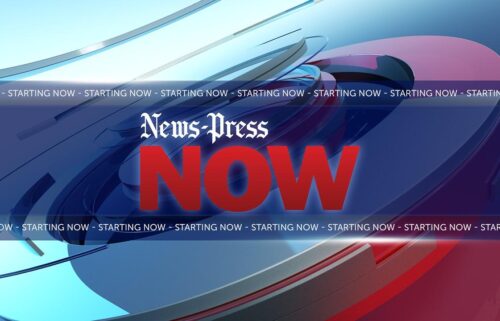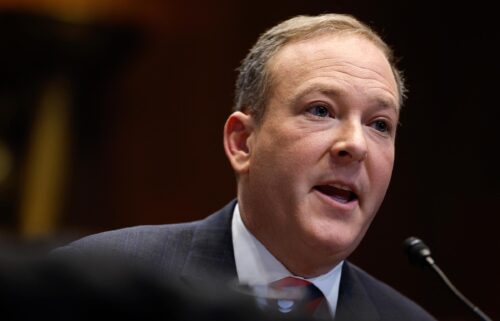Local public broadcasters look ahead following Trump’s executive order announcing funding cuts

Marie Moyer
COLUMBIA, Mo. (KMIZ)
Days after President Donald Trump signed an executive order ending federal funding for NPR and PBS, public broadcasting stations in Mid-Missouri stations are bracing for impact.
Trump alleged in Thursday’s executive order that public stations were biased and “government funding of news media in this environment is not only outdated and unnecessary but corrosive to the appearance of journalistic independence.”
Under the order, the Corporation for Public Broadcasting board will stop direct funding to NPR and PBS and will stop any future funding to the organizations. This includes any remaining grants or contracts. A legal battle lies ahead.
“We are currently exploring all options to allow PBS to continue to serve our member stations and all Americans,” PBS President and CEO Paula Kerger said in a statement Friday.
NPR President and CEO Katherine Maher in a statement called the order an affront to the First Amendment.
“With the creation of the Public Broadcasting Act, Congress explicitly forbade ‘any department, agency, officer, or employee of the United States to exercise any direction, supervision, or control over educational television or radio broadcasting,’” Maher said in a statement posted to NPR’s website. “This independence has informed the role of public broadcasting in the American interest for more than half a century.”
Public broadcasting in Mid-Missouri includes radio stations KBIA and KOPN in Columbia and television station KMOS in Warrensburg. KBIA reportedly has 30,000 listeners per week, KOPN reaches around 200,000 people and KMOS reports reaching nearly 1 million people, each station reports.
Both NPR and PBS are considering legal action as both entities are private and protected from government interference, CNN wrote on Friday. According to CNN, the CPB disburses $535 million in taxpayer funds to public radio and TV stations. This is first approved by congress and typically done a year in advance.
A 2023-24 financial statement reports that the KMOS’s total operating expenses for the year were a little more than $3 million. The station’s financial reports found that more than $1 million in their funds was from public broadcasting entities like CPB and fewer than $200,000 were from state departments. More than $400,000 were from subscribers.
General Manager of KMOS-TV Josh Tomlinson said the station is currently not seeing any impacts, but worries for the long-term.
“We also represent a largely rural area, our coverage area, 15% of it is in communities of 2,500 or last,” Tomlinson said. “While they’re give as much as possible and we’re grateful for every dollar of it, if we were to lose our federal funding, it would be devastating to KMOS because there is not a source of income within our viewing area to replace that money.”
Along with airing some nationally distributed PBS programs, KMOS also produces Missouri-specific shows that touch on local culture as well as politics.
“We may not have something for somebody all of the time, but we definitely have something for everybody at some of the time,” Tomlinson said. “We carry a show called ‘This Week in Missouri Politics’ that is produced by the Missouri Times and it is all about Jefferson (City), the legislature in Jefferson City, and some people perceive that as a right wing show but it’s only because we have a Republican super majority.”
A major concern Tomlinson has is the possibility of weather coverage being impacted.
“We cover a broad swath of central Missouri in Missouri, in 33 counties, nearly a million people and we have automated weather alerts that go out whenever there’s a tornado or a thunderstorm,” Tomlinson said. “In some of those areas where the only station that they can get, and so that would be one of the areas that was impacted.”
Tomlinson said that the station is currently making plans for future funding.
Executive Director of KOPN Dylan Martin said that he expects the station to stay afloat despite any impending cuts. He credits listener support with more than 50% of the station’s budget coming from public donors. The station also has a contingency plan with its board.
“I’m confident that we can weather the storm, but it’s going to hurt the public radio system as a whole and definitely create some some stresses here,” he said.
Martin similarly shared concerns for communities needing weather coverage and hearing from those in the area.
“These stations are the only source of not only news, information, culture, even entertainment, but they are also the outlets for the emergency alert system, those the tornado warnings and flash flood warnings that that people need to stay safe,” Martin said. “We reach a lot of those small communities and what we offer is, it’s right in our mission, we want to give a platform to underrepresented voices.”
KOPN similarly runs nationally distributed programs, as well as local shows.
“We’re providing options and we’re providing different ideas, different perspectives, and definitely don’t all align, they, they often contradict each other,” Martin said. “On Wednesdays at 10 a.m., we have a show called’ Open to Debate’ that actually spends an hour presenting a moderated debate between people with two totally different points of view on a subject.”
Martin added he is most concerned about the station’s volunteer training program possibly being impacted.
“That’s one of the things I’m most proud of about KOPN and one of the things that I would be most sad to see lost is just our volunteer training program. We sort of specialize in training people in… putting people in the broadcasters and training them to become broadcasters,” he said.
“That is one of the most impactful things we do, is just providing that just sort of bootstrap kind of education, I guess you’d say, teach people (the) art and science and the law of radio.”
Click here to follow the original article.




